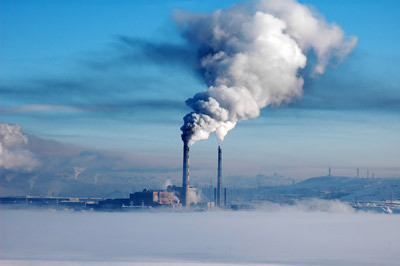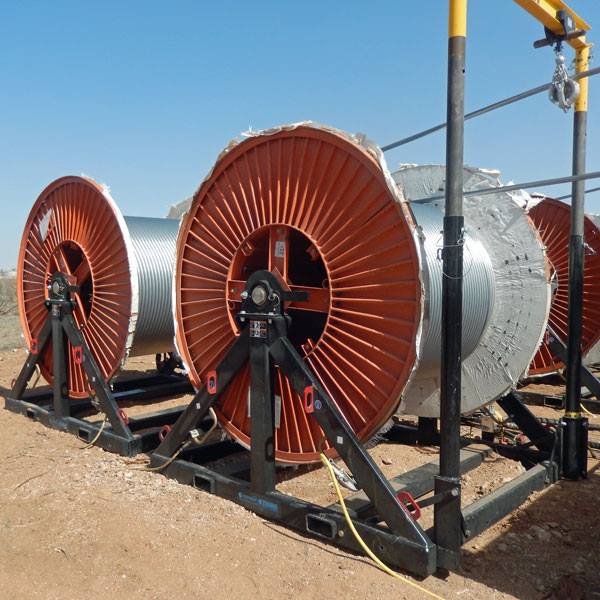 On December 16, the Liberal Democratic Party of Japan won an election with an overwhelming advantage and regained power in three years. The return of the Liberal Democratic Party rapidly smashed the strong anti-nuclear atmosphere created during the election campaign by the “third pole†political forces. ** It is widely believed that the victory of this pro-nuclear party means that Japan’s current energy policy to suppress nuclear power is likely to be reversed. In the words of Asahi Shimbun, with the transition of the political power from the "nuclear zero" party in favor of the Liberal Democratic Party, which does not aim at "nuclear nuclear power," associations to restart nuclear power plants are spreading.
On December 16, the Liberal Democratic Party of Japan won an election with an overwhelming advantage and regained power in three years. The return of the Liberal Democratic Party rapidly smashed the strong anti-nuclear atmosphere created during the election campaign by the “third pole†political forces. ** It is widely believed that the victory of this pro-nuclear party means that Japan’s current energy policy to suppress nuclear power is likely to be reversed. In the words of Asahi Shimbun, with the transition of the political power from the "nuclear zero" party in favor of the Liberal Democratic Party, which does not aim at "nuclear nuclear power," associations to restart nuclear power plants are spreading. The LDP returns
In the 46th House of Representatives election held in Japan on the 16th, the alliance of the Liberal Democratic Party and the New Komeito Party won 320 seats (a total of 480 seats) and won an overwhelming victory. LDP president Shinzo Abe will be designated as the 96th Prime Minister of Japan on the 26th special parliament.
Japan’s Kyodo News commented that this election was the first true election of Japan since March 11. However, the various parties failed to conduct in-depth discussions on the reconstruction measures led by the nuclear power policy. As a result, voters chose energy policy. The LDP, which is furthest away from "nuclear power."
As a traditional conservative party, the Liberal Democratic Party’s very nuclear position is very firm and has a long history. In the past half century or so, the Liberal Democratic Party has played the role of the ruling party for most of the time, which ensures that the nuclear power strategy it pushes has a rare continuity. Japan under the Liberal Democratic Party once designated nuclear power development as a national policy. The proportion of nuclear power in the country is close to 30%, and a "myth of nuclear power safety" has been created. However, the Fukushima nuclear power crisis triggered by the “3.11†Great Earthquake in Japan instantly shattered the private confidence accumulated by Japan’s people over nuclear power over the years. However, the Liberal Democratic Party’s nuclear stance has remained consistent.
Agence France-Presse said that over the past year, Japan’s anti-nuclear anti-nuclear electricity sentiment continued to soar, but public opinion has no longer trusted Noda and his party to build “Non-nuclear Japan,†and Abe’s succession to Noda is clear. Nuclear position, this new leader of the style of hawks has more than once criticized the “nuclear zero†policy “unrealistically and irresponsibly†in public and often hinted that he would like nuclear power.
In this election, the Liberal Democratic Party's campaign slogan for energy issues is "determining the best energy structure within 10 years," and stressed that it will "restart nuclear power within three years" after being elected. Since March 2011, Japan has gradually shut down 50 nuclear reactors in the country, but only two have restarted. In September of this year, Noda Yoshihiko proposed to achieve the “denuclearization†of Japan's power industry in 2030, but this proposal did not pass the cabinet.
Japanese media generally believes that with the strong return of the Liberal Democratic Party, Japan will adjust its current energy policy to suppress nuclear power as a whole. Japan's largest securities company Nomura Holdings analyst Matsumoto Hirata pointed out that the Liberal Democratic Party’s winning of the election means that Japan’s long-term energy policy will be adjusted, including but not limited to restarting nuclear power.
Industry expects to loosen nuclear power
Under the strong expectation of "restarting nuclear power," Japan's nuclear power operator stock prices have risen sharply.
On the day of the Liberal Democratic Party’s victory, Dongdian’s share price rose by 33%, while Kansai Electric Power and Central Power rose by 17.6% and 9.59%, respectively. Among them, the power generation business of Kansai Electric is half of its nuclear power, and 17.6% has also set the biggest single-day gain of the company's stock price since 1974. It is worth mentioning that outside of Japan, the shares of Paladin and Energy Resources of Australia, two of Australia's two mining companies, also rose by 8.4% and 5% respectively due to the Liberal Democratic Party’s victory.
Kawasaki Kevin, an energy analyst at Mizuho Securities in Japan, believes that the sharp rise in share prices of power companies and mine producers indicates that investors believe that the victory of the Liberal Democratic Party will greatly benefit Japan’s nuclear power industry.
However, nuclear power that seems to have gained political support still cannot win public opinion. The latest polls show that 80% of Japanese support the gradual nuclear abandonment, but the election results do not seem to accurately reflect this public opinion.
According to Hiroshi Kawahara, a professor of political science at the Meiji Gakuin University, the reason for this phenomenon is that the Japanese are most concerned about economic issues, and the impact of nuclear abandonment on the Japanese economy has become quite obvious. "Japan is an island nation and it is not possible to get energy from neighboring countries as easily as Germany, so it tends to be conservative on economic issues."
Since March 11th, due to the shutdown of relatively inexpensive nuclear power, thermal power fuel costs have soared, and the operating conditions of electric power companies have deteriorated, and some of them have fallen into a deficit state. According to the latest data released by Japan's Ministry of Finance on the 19th, the total import volume of liquefied natural gas (LNG) in Japan in the first 11 months of this year increased by 11.6% year-on-year to 80 million tons, equivalent to 1/3 of the total global LNG trade in 2011. .
According to the report of Asahi Shimbun, the Liberal Democratic Party’s governor Gan Liming emphasized in the television program on the evening of the 16th: “The import of natural gas is the biggest cause of the trade deficit. Only restarting safe nuclear power will not make the nation’s wealth. Loss."
Against such a backdrop, the nuclear power industry in Japan is no longer silent and publicly calls on the government to adjust its nuclear power policy.
According to a report by the Kyodo News Agency, the Federation of Japanese Electric Power Companies (FEPC) and the Keidanren Coalition of Japan issued a joint statement on the 19th, demanding that the government "re-accept nuclear power" within a week. Senior executives of electric power companies, including Tokyo Electric Power Co., Ltd. President Hirohisa Toru, and Kansai Electric Power President Yagigi, have also publicly called on the government to seriously consider not to give up nuclear power.
Reuters believes that under current conditions, Japan’s restart of nuclear power in the short term is not realistic, especially considering that the newly established Nuclear Power Regulatory Commission (NRA) will introduce a new version of the nuclear power safety standard in July next year, and the Abe cabinet will be at this time There will be no major action before.
Hard to choose
Due to the painful memories of the nuclear bomb attack, the anti-nuclear sentiments of Japanese civilians have never subsided since the ban on nuclear energy development in the 1950s. However, the official nuclear attitude is also resolute. Japan's developed nuclear power industry is opposed to such malformations. The atmosphere grows step by step.
Constrained by the reality of the country, the Japanese government has never been able to give a definitive answer to the retention or abolition of nuclear power. The tragedy in Fukushima has apparently failed to make Japanese politicians decisive.
However, restarting nuclear power is not an easy task. In addition to the complicated official approval process, civil opposition is even more tricky. In July last year, the Communist Party reactivated two reactors in order to alleviate the power shortage problem. As a result, Japan’s most powerful anti-nuclear procession in half a century has been triggered, and the number of participants has approached 200,000.
In fact, if Japan cannot start a new nuclear power plant as soon as possible, in the long run, Japan’s nuclear power will show a natural decline. By 2020, due to the arrival of a large number of nuclear power plants in the decommissioning period, the proportion of nuclear power generation in Japan is expected to drop to about 10% to 20%.
Our wire dispensers, spools and reels will help make sure your cables are ready to be pulled neatly and easily. Whether you're working with coaxial, telephone, security cables or more, our reel managers will help you easily transport, store and dispense your coiled cabling. In addition to our spools, reels and dispensers, we also offer carts and dollies, spool caddies, and reel holders to make sure all your wires and cables are ready to be pulled when you need them.

Reel And Reel Stands ,Steel Cable Reel,Wire Reel Stands,Conductor Reel Stands
NINGBO MARSHINE POWER TECHNOLOGY CO., LTD. , http://www.marshine-power.com
